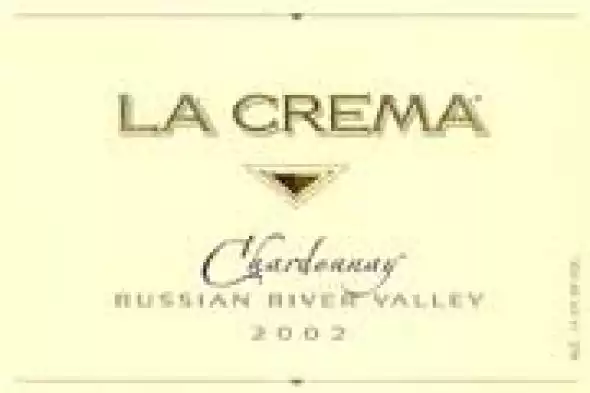Salmon Mousse

Salmon Mousse requires around 45 minutes from start to finish. Watching your figure? This pescatarian recipe has 327 calories, 12g of protein, and 13g of fat per serving. This recipe covers 13% of your daily requirements of vitamins and minerals. This recipe serves 18. If you have dill weed, paprika, parsley, and a few other ingredients on hand, you can make it. 1 person found this recipe to be yummy and satisfying.
Instructions
1
Drain salmon, reserving liquid; add water to salmon liquid to yield 1/2 cup.
Ingredients you will need![Salmon]() Salmon
Salmon![Water]() Water
Water
2
Combine salmon liquid and gelatin in a small saucepan; cook over medium heat, stirring constantly, until gelatin dissolves.
Ingredients you will need![Gelatin]() Gelatin
Gelatin![Salmon]() Salmon
Salmon
Equipment you will use![Sauce Pan]() Sauce Pan
Sauce Pan
5
Place gelatin mixture, salmon, onion, mayonnaise, sour cream, lemon juice, garlic salt, dill weed, pepper, and parsley in container of an electric blender; process until smooth.
Ingredients you will need![Garlic Salt]() Garlic Salt
Garlic Salt![Lemon Juice]() Lemon Juice
Lemon Juice![Mayonnaise]() Mayonnaise
Mayonnaise![Sour Cream]() Sour Cream
Sour Cream![Dill]() Dill
Dill![Gelatin]() Gelatin
Gelatin![Parsley]() Parsley
Parsley![Pepper]() Pepper
Pepper![Salmon]() Salmon
Salmon![Onion]() Onion
Onion
Equipment you will use![Blender]() Blender
Blender
Ingredients
18servings![Cooked shell pasta]() Cooked shell pasta18servings
Cooked shell pasta18servings![Assorted crackers]() Assorted crackers118milliliters
Assorted crackers118milliliters![commercial sour cream]() commercial sour cream0teaspoons
commercial sour cream0teaspoons![dried whole dill weed]() dried whole dill weed4sprigs
dried whole dill weed4sprigs![fresh parsley]() fresh parsley1teaspoon
fresh parsley1teaspoon![garlic salt]() garlic salt2envelopes
garlic salt2envelopes![unflavored gelatin]() unflavored gelatin18servings
unflavored gelatin18servings![Green onions, blanched and cut into strips]() Green onions, blanched and cut into strips2Tbsps
Green onions, blanched and cut into strips2Tbsps![lemon juice]() lemon juice118milliliters
lemon juice118milliliters![mayonnaise]() mayonnaise237milliliters
mayonnaise237milliliters![chopped onion]() chopped onion18servings
chopped onion18servings![Paprika]() Paprika439grams
Paprika439grams![red salmon, undrained]() red salmon, undrained0teaspoons
red salmon, undrained0teaspoons![white pepper]() white pepper18servings
white pepper18servings![Aspic]() Aspic
Aspic
 Cooked shell pasta18servings
Cooked shell pasta18servings Assorted crackers118milliliters
Assorted crackers118milliliters commercial sour cream0teaspoons
commercial sour cream0teaspoons dried whole dill weed4sprigs
dried whole dill weed4sprigs fresh parsley1teaspoon
fresh parsley1teaspoon garlic salt2envelopes
garlic salt2envelopes unflavored gelatin18servings
unflavored gelatin18servings Green onions, blanched and cut into strips2Tbsps
Green onions, blanched and cut into strips2Tbsps lemon juice118milliliters
lemon juice118milliliters mayonnaise237milliliters
mayonnaise237milliliters chopped onion18servings
chopped onion18servings Paprika439grams
Paprika439grams red salmon, undrained0teaspoons
red salmon, undrained0teaspoons white pepper18servings
white pepper18servings Aspic
AspicRecommended wine: Chardonnay, Pinot Noir, Sauvignon Blanc
Salmon can be paired with Chardonnay, Pinot Noir, and Sauvignon Blanc. To decide on white or red, you should consider your seasoning and sauces. Chardonnay is a great friend to buttery, creamy dishes, while sauvignon blanc can complement herb or citrus-centric dishes. A light-bodied, low-tannin red such as the pinot noir goes great with broiled or grilled salmon. The La Crema Russian River Chardonnay with a 4.1 out of 5 star rating seems like a good match. It costs about 28 dollars per bottle.

La Crema Russian River Chardonnay
On the nose are citrus tones, with green apple, pineapple and floral aromas accentuated by caramel and hazelnut traces. The bright fruit and crisp acidity typical of the Russian River appellation are apparent in the mouth, with lemon-lime components and concentrated pear notes, offset by a lingering apple and spice finish.DifficultyExpert
Ready In45 m.
Servings18
Health Score8
Magazine

Your Inner Chef with Taylor Swift's Top 3 Recipes from Her Beloved NYC Hangout

20 Mouthwatering Recipes You Need to Try Today!

Master the Art of Making Perfect Pancakes with This Foolproof Recipe

The Science Behind Red Wine: Its Surprising Health Benefits and Potential Risks

12 Wine Cocktails for a Sophisticated Twist

Sip, Swirl, and Celebrate: Toasting to National Wine Day on May 25th

National Drink Wine Day on February 18

Celebrating Souffle Day with Delectable Delights

Indulge in the Delightful Flavor of Oyster Soup on Its Special Day!

Celebrating World Nutella Day

Exploring Europe's Rich Food Culture: A Gastronomic Journey Across the Continent

10 Delicious Cold Food Ideas to Beat the Heat this Summer

From Burgers to Apple Pie: Exploring the Top 10 American Foods You Must Try!

Feast your senses: Exploring the vibrant food culture of Brazil

From Fast Food to Farm-to-Table: Exploring the Diverse Food Culture in the United States

Exploring the Global Culinary Delights: A Journey Through Food and Culture

From Tokyo to New York Exploring the Best Japanese Restaurants

A Step-by-Step Guide to Making Irresistible Homestyle Potato Chips

Exploring the World's Most Iconic Dishes

10 Delicious and Easy Recipes the Whole Family Will Love

Your Inner Chef with Taylor Swift's Top 3 Recipes from Her Beloved NYC Hangout

Celebrate National Pizza Day on February 9th with Mouthwatering Slices and Fun Facts

Indiana's Exciting Addition to the Summer Food Program for School Children

Readers' Top Picks for the Best Restaurant Desserts on National Dessert Day

Artichoke Tomato Pesto Flatbread Recipe A Scrumptious Twist on Savory Classics

Mastering Weeknight Meals with 30 Days of 25-Minute Dinner Recipes

Healthy and Delicious 5-Ingredient Breakfast Recipes

Top 10 Pioneer Woman Recipes of 2023!

From Ropa Vieja to Mojitos Traditional Cuban Cuisine





